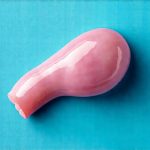The intricate connection between our digestive system and urological health is often underestimated. We typically view these systems as separate entities – one dealing with food processing, the other with waste elimination and reproductive function. However, a growing body of research reveals a deeply interwoven relationship where the health of one profoundly impacts the other. A thriving gut microbiome, efficient digestion, and consistent hydration aren’t simply about comfortable bowel movements; they are foundational to optimal bladder control, prostate health (for men), pelvic floor strength, and overall urinary tract well-being. Ignoring digestive health can inadvertently contribute to a range of urological issues, from frequent urination and urgency to more serious conditions like interstitial cystitis or chronic prostatitis.
This article explores the concept of “Daily Digestive Focus” – not as a restrictive diet but as an intentional lifestyle approach that prioritizes gut health and its ripple effect on urological harmony. It’s about understanding how what we eat, how we hydrate, and even how we manage stress can all contribute to a healthier urinary system. We will delve into practical strategies you can integrate into your daily routine to support both digestive function and urological well-being, focusing on evidence-based approaches and promoting holistic health rather than quick fixes. Ultimately, the goal is to empower you with knowledge and tools to proactively nurture these interconnected systems for lasting vitality. Considering how diet impacts overall urological care, exploring whole-food based nutrition can be a powerful first step.
The Gut-Bladder Axis: A Deeper Dive
The connection between the gut and bladder isn’t merely theoretical; it’s rooted in physiological mechanisms. One key pathway lies within the pelvic floor muscles. These muscles are crucial for both bowel and bladder control, acting as a supportive sling for these organs. Chronic constipation or digestive distress can place excessive strain on the pelvic floor, weakening its function over time. This weakening can lead to urinary incontinence, urgency, or even prolapse issues. Conversely, a healthy gut – one that’s regularly ‘emptied’ without straining – supports a strong and resilient pelvic floor. To further support pelvic health, consider incorporating daily herbal rituals into your routine.
Furthermore, inflammation plays a significant role in both digestive disorders and urological conditions. A compromised gut barrier – often referred to as “leaky gut” – allows undigested food particles and toxins to enter the bloodstream, triggering systemic inflammation. This chronic inflammation can exacerbate bladder sensitivity (contributing to symptoms of interstitial cystitis) or worsen prostate inflammation (a factor in prostatitis). The microbiome itself is also deeply involved; imbalances in gut bacteria can produce metabolites that directly influence bladder function and immune responses within the urinary tract. Aiding this process, incorporating anti-inflammatory foods is beneficial.
The vagus nerve, a critical communication pathway between the gut and brain, further reinforces this connection. Digestive issues can impact vagal tone – the measure of nervous system resilience – leading to increased stress and anxiety, which in turn can exacerbate urological symptoms like overactive bladder. Therefore, addressing digestive health isn’t just about managing bowel movements; it’s about fostering a healthier nervous system response that benefits the entire body, including the urinary tract. Managing stress levels is also key; exploring low-tension daily protocols can be helpful.
Dietary Foundations for Digestive & Urological Health
A cornerstone of Daily Digestive Focus is adopting a dietary pattern that supports gut health and minimizes irritation to the bladder. This doesn’t necessarily mean eliminating entire food groups, but rather making mindful choices. Here are some key considerations:
- Fiber Rich Foods: Aim for 25-35 grams of fiber daily from sources like fruits, vegetables, whole grains, and legumes. Fiber promotes regularity, supports a healthy microbiome, and reduces strain on the pelvic floor. However, introduce fiber gradually to avoid bloating or discomfort.
- Fermented Foods: Incorporate probiotic-rich foods such as yogurt (with live cultures), kefir, sauerkraut, kimchi, or kombucha into your diet. These foods help diversify the gut microbiome. In fact, fermented foods offer unique benefits for both digestive and bladder health.
- Hydration is Key: Drink adequate water throughout the day – generally around 8 glasses – to support both digestion and bladder function. Avoid excessive caffeine and alcohol, which can irritate the bladder.
- Limit Inflammatory Foods: Reduce intake of processed foods, sugary drinks, refined carbohydrates, and unhealthy fats, as these contribute to systemic inflammation that impacts both gut and urological health.
A mindful approach to food sensitivities is also crucial. Some individuals find that certain foods exacerbate their digestive or urological symptoms. Common culprits include dairy, gluten, citrus fruits, spicy foods, artificial sweeteners, and nightshades (tomatoes, peppers, eggplant). An elimination diet, conducted under the guidance of a healthcare professional, can help identify potential trigger foods.
The Role of Hydration & Fluid Management
Beyond simply drinking enough water, thoughtful fluid management is essential for both digestive and urological health. The type of fluids consumed also matters significantly. As mentioned previously, excessive caffeine and alcohol are known bladder irritants, increasing urgency and frequency. Carbonated beverages can also contribute to bloating and discomfort, potentially impacting pelvic floor function.
- Prioritize Water: Make water your primary beverage choice. Infusing water with slices of cucumber or lemon can make it more palatable.
- Herbal Teas: Certain herbal teas, such as chamomile or peppermint (in moderation), may aid digestion and have calming effects on the bladder. Be cautious about teas marketed for “detox” purposes, as some ingredients can be harsh on the digestive system.
- Electrolyte Balance: Especially during hot weather or intense exercise, replenish electrolytes lost through sweat. Electrolytes are crucial for proper nerve and muscle function, including those controlling bladder and bowel movements. Coconut water is a natural source of electrolytes.
Consistent hydration helps prevent constipation, supports healthy kidney function (which impacts urine production), and dilutes urine, reducing irritation to the bladder lining. It’s also important to space out fluid intake throughout the day rather than consuming large amounts at once, which can overwhelm the bladder. To further enhance hydration, consider incorporating hydrating herbs into your daily routine.
Stress Management & Its Impact on Digestion & Urological Health
Stress is a silent saboteur of both digestive and urological health. When we experience stress, our bodies activate the “fight-or-flight” response, diverting blood flow away from the digestive system and towards muscles needed for immediate action. This can lead to impaired digestion, constipation, bloating, and increased gut permeability.
Chronic stress also impacts bladder function through several mechanisms:
– Increased Cortisol: Elevated cortisol levels (a stress hormone) can disrupt pelvic floor muscle control and increase bladder sensitivity.
– Vagal Nerve Disruption: As previously mentioned, stress negatively impacts vagal tone, leading to heightened anxiety and urinary urgency.
Integrating stress management techniques into your daily routine is therefore vital for Daily Digestive Focus:
– Mindfulness & Meditation: Regular practice can help calm the nervous system and reduce cortisol levels.
– Deep Breathing Exercises: Simple deep breathing exercises can activate the parasympathetic nervous system (the “rest and digest” response), promoting relaxation and improved digestion.
– Regular Exercise: Physical activity is a powerful stress reliever and supports overall well-being.
– Yoga & Pilates: These practices strengthen pelvic floor muscles, improve posture, and promote mindful movement.
Ultimately, Daily Digestive Focus isn’t about achieving perfection; it’s about cultivating awareness and making small, sustainable changes that support the interconnected health of your digestive and urological systems. It is a holistic approach that recognizes the powerful interplay between what we eat, how we hydrate, and how we manage stress – all contributing to lasting vitality and well-being. For those seeking additional guidance, daily self-care mapping can provide a structured approach.





















